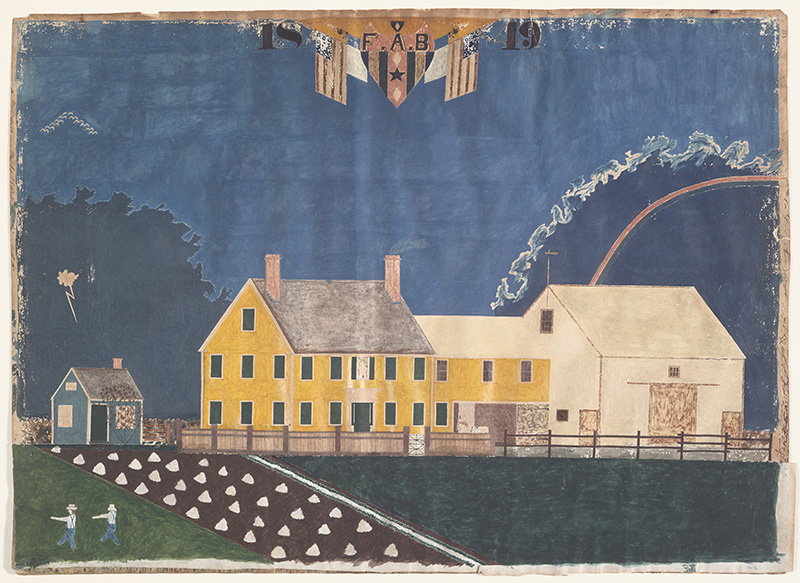The Museum of Fine Arts, Boston’s newest exhibition “Collecting Stories: The Invention of Folk Art” presents the history and evolution of the term “folk art” through sculptures and works on paper from the MFA’s Karolik Collection of American Folk Art. The show celebrates Russian collector and American art authority Maxim Karolik as a visionary who, ahead of his time, recognized the value of folk art—works created outside the traditional art canon.
MFA Boston’s newest exhibition “Collecting Stories: The Invention of Folk Art” presents the history and evolution of the term “folk art” through sculptures and works on paper from the MFA’s Karolik Collection of American Folk Art. The show recognizes Russian collector and American art authority Maxim Karolik as a visionary who, ahead of his time, recognized the value of folk art—works created outside the traditional art canon.
However, Karolik did not find any respite in Lenox. Instead, he found a renewed passion. The collector excitedly telephoned his MFA collaborator, Henry P. Rossiter, and gushed about the remarkable drawings that he discovered at the Berkshire Hills Antique Show, telling the curator that he should be prepared to be “bowled over.” Rossiter later wrote that he “hoped there might be a few examples by some of the ranking artists, by Homer, perhaps, or Sully or Bingham, among others.” But “Vain Hope. Jubilantly Mr. Karolik brought his catch to the Museum, over eighty, all framed in Victorian walnut or crumbling gilt and in assorted sizes. There were watercolors, pastels, pencil and wash and ink drawings, by primitives, amateurs, and schoolchildren…. What a nightmare or so it seemed.”
Karolik shook up established standards of fine art by championing the then radical notion of incorporating folk art within an encyclopedic museum. However, Karolik’s expansive vision of American art proved to be ahead of his time—while MFA curators ultimately accepted the value of folk art, they remained reluctant to display it alongside the so-called “fine art” in the collection for decades to come.
Sign up for updates
Explore Themes and Ideas































































